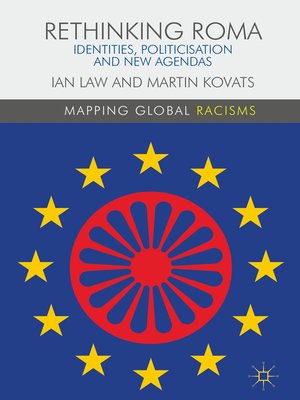Rethinking Roma
ebook ∣ Identities, Politicisation and New Agendas · Mapping Global Racisms
By Ian Law

Sign up to save your library
With an OverDrive account, you can save your favorite libraries for at-a-glance information about availability. Find out more about OverDrive accounts.
Find this title in Libby, the library reading app by OverDrive.



Search for a digital library with this title
Title found at these libraries:
| Loading... |
This book provides the first comprehensive analysis of the emergence, development and implications of the Roma political phenomenon in contemporary Europe. It also challenges the conventional epistemological basis to political claims of distinct Roma people and argues that the contemporary politics of Roma is better understood as the public application of Roma identity.
In recent times a new word has entered the political lexicon across Europe and beyond: Roma. Thirty years ago it would have been hard to encounter the public use of the word outside of a small number of academics and activists. In the second decade of the new millennium, Roma has become a dynamic political identity championed by hundreds of organisations, thousands of activists and applied to millions of people across Europe and beyond. Roma has become an agenda item for local and national authorities, as well as being taken up by the European Union and other international organisations. In challenging the conventional epistemology, this book examines the principal interests and processes that are constructing Roma as a public, political identity encompassing highly differentiated groups of people.
This book brings together critical race theory and theories of ethnic mobilisation to provide a new critical framework for understanding Roma identity, history and transnational politics. It will be of particular interest to students and academics within the fields of global racialization and ethnicity studies.






